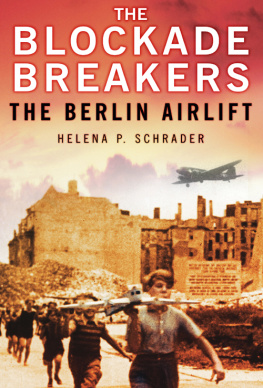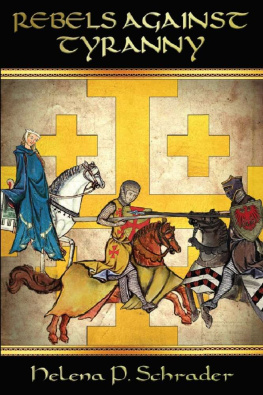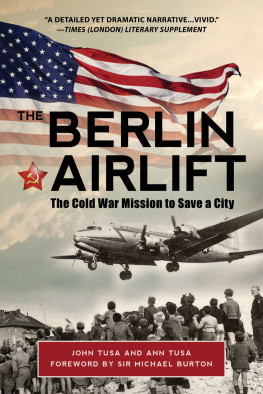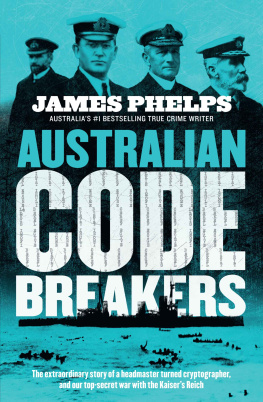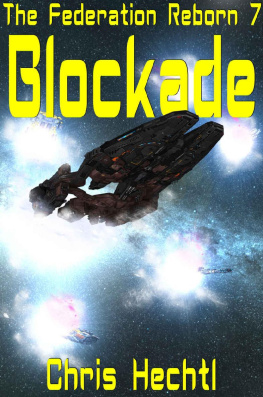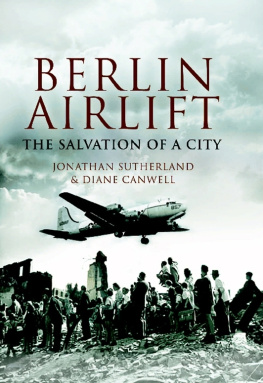Schrader - The Blockade Breakers
Here you can read online Schrader - The Blockade Breakers full text of the book (entire story) in english for free. Download pdf and epub, get meaning, cover and reviews about this ebook. year: 2011;2010, publisher: Spellmount, genre: Politics. Description of the work, (preface) as well as reviews are available. Best literature library LitArk.com created for fans of good reading and offers a wide selection of genres:
Romance novel
Science fiction
Adventure
Detective
Science
History
Home and family
Prose
Art
Politics
Computer
Non-fiction
Religion
Business
Children
Humor
Choose a favorite category and find really read worthwhile books. Enjoy immersion in the world of imagination, feel the emotions of the characters or learn something new for yourself, make an fascinating discovery.
The Blockade Breakers: summary, description and annotation
We offer to read an annotation, description, summary or preface (depends on what the author of the book "The Blockade Breakers" wrote himself). If you haven't found the necessary information about the book — write in the comments, we will try to find it.
Schrader: author's other books
Who wrote The Blockade Breakers? Find out the surname, the name of the author of the book and a list of all author's works by series.
The Blockade Breakers — read online for free the complete book (whole text) full work
Below is the text of the book, divided by pages. System saving the place of the last page read, allows you to conveniently read the book "The Blockade Breakers" online for free, without having to search again every time where you left off. Put a bookmark, and you can go to the page where you finished reading at any time.
Font size:
Interval:
Bookmark:

Cover illustrations: Front: Children in Berlin play Airlift (Landesarchiv Berlin).
Back:In the winter of 1948/9, the desperate situation in Berlin forced both air forces to fly in visibility far below the safety minimums established. (US National Archives and Records Administration).
First published in 2008
This edition published in 2011
The History Press
The Mill, Brimscombe Port
Stroud, Gloucestershire, GL 5 2 QG
www.thehistorypress.co.uk
This ebook edition first published in 2011
All rights reserved
Helena P. Schrader, 2008, 2010, 2011
The right of Helena P. Schrader, to be identified as the Author of this work has been asserted in accordance with the Copyrights, Designs and Patents Act 1988.
This ebook is copyright material and must not be copied, reproduced, transferred, distributed, leased, licensed or publicly performed or used in any way except as specifically permitted in writing by the publishers, as allowed under the terms and conditions under which it was purchased or as strictly permitted by applicable copyright law. Any unauthorised distribution or use of this text may be a direct infringement of the authors and publishers rights, and those responsible may be liable in law accordingly.
EPUB ISBN 978 0 7524 6803 7
MOBI ISBN 978 0 7524 6804 4
Original typesetting by The History Press
To all the men and women who contributed in whatever way to the success of this remarkable and unique operation
MAPS
T his book could not have been written without the contributions of the many men and women who took the time to write, email or call me with their personal stories. Almost all who contacted me felt their own contribution had been small; most were hesitant about whether their stories were important enough for a book, yet it is precisely the contributions of everyone from cook to flight captain that I would like to honour here. I do not wish to distinguish between them now and I thank them all equally.
I also wish to thank Jonathan Falconer of Sutton Publishing who guided me gently but firmly in the right direction. Without his faith in this book, it would never have been written.
I t was cold, wet and windy, as so often in Berlin. The dark clouds hung low over the city. Smoke oozing from the chimneys of the power plants and factories was trapped under the overcast sky, wrapping the city in illsmelling smog.
Nothing in the city had seen paint or fresh plaster for nearly a decade, and so the grime of the smoke-laden air had blackened the faces of the buildings. What buildings there were, that is. Whole sections of the city resembled the ruins of Pompeii and Herculaneum: the pattern of the streets was visible, yet between the streets only heaps of rubble lay helpless and inert in the gloom.
But in Berlin in the winter of 1948 many of these ruins were inhabited. People lived in the cellars and in the decapitated lower stories of halfdestroyed apartment blocks. They housed under the rubble in windowless caverns created by partially intact rooms. They had built shacks out of broken wood and masonry in the hulking wrecks of what had once been gracious courtyards. Plywood, newspaper and tarpaper glazed the windows of these dwellings, and chalk messages scribbled on the dirty faades told visitors where the former residents of ruins might now be found.
The once gracious boulevards of the mutilated city led away from the dead heart towards the suburbs. The trees flanking the wide avenues struggled to survive; those trees, that is, that had not been incinerated by the fire-bombs or splintered by artillery and tanks. On the strip between the avenues, remnants of summer vegetable gardens lay fallow awaiting the return of spring. Open trams clanked along ringing their bells to warn the horse-drawn carts and bicycles to move out of the way. Workers in dungarees and young men in made-over uniforms with shabby briefcases clung to the outsides of the trams.
Gradually the buildings rose from the rubble in greater number and height. Their faades were pock-mocked from artillery and small-arms fire; large sheets of naked brick were exposed where the once elegant faades had shattered and fallen off. Here and there signs indicated a shop selling coal or food, and before these, crowds of women wearing head-scarves and shapeless winter coats stood awaiting their turn. And over all droned the continuous, relentless hum of aircraft engines.
A four-engine aircraft broke free of the cloud right over the rooftops of the five-storey buildings crowding the large airfield just south of the city centre. It was already on final approach. Undercarriage and flaps were down as it sank below the rooftops, level with the apartments on the top floor. The approach lights it was following ran through a graveyard and guided the aircraft on to a broad, flat airfield. The Skymaster throttled back, sank the last few feet and settled down hard with a short squeak of rubber on concrete and a puff of rubber smoke.
Ahead, an RAF York was just turning off the runway, and on the parallel runway a Dakota was taking off. Aircraft lined the taxiway like dutiful ducks waiting for the chance to trundle onto the runway and take off. On the hard standings beside the semi-circular terminal buildings which embraced the airfield from the north-west, dozens of Skymasters, Dakotas, Yorks and Hastings stood like docile workhorses, while crates of tinned goods, sacks of flour and bags of coal were offloaded into waiting lorries. Crews of stevedores worked like brigades of frenzied ants to strip the aircraft of their cargoes in the shortest possible time. Their faces, hands and dungarees were black with coal. Soldiers in jeeps dashed between the lorries delivering weather reports and orders to the aircrews.
From the cockpit of an aircraft that had just shut down its engines, the crew emerged, leather flying jackets concealing the rank insignia of the officers. Already the cargo of coal was being moved from the aircraft to the waiting lorry at a hectic pace. The pilots trousers were crumpled from the flight, his hands dirty from the grime that had infiltrated every compartment of the aircraft, the coal dust from today, the flour from yesterday....
From under the concrete overhang of the terminal two small civilians emerged. They moved forward hesitantly, intimidated by the bustle, dust and noise of the offloading, the purposeful movements of the heavy lorries and the hectic frenzy of military vehicles. Both civilians were dressed in their best. The taller wore hat and gloves and high-heeled shoes. The shorter wore a puffy skirt, white ankle socks and a ribbon in her hair. The woman had a bouquet of flowers, while the young girl clutched a brown teddy bear with the fuzz worn off its bottom.
The pilot noticed the approach of the two civilians and paused. This was not the first time he had been confronted with such a delegation. Grateful Berliners had increasingly brought tokens of gratitude to the men supplying the besieged city by air. They had brought hand-made gifts and family heirlooms, little plaques and inscribed books anything they had salvaged from the ruin of their city and could afford to give away. Yet the flowers seemed like a tiny miracle. Where had this woman found fresh flowers in the dead of winter in a besieged city where every square inch of fertile soil was devoted to producing fresh things to eat? But here they were, a tiny burst of colour in the gloom of a wintry dusk, a remembrance of better times and a promise of a better future.
Font size:
Interval:
Bookmark:
Similar books «The Blockade Breakers»
Look at similar books to The Blockade Breakers. We have selected literature similar in name and meaning in the hope of providing readers with more options to find new, interesting, not yet read works.
Discussion, reviews of the book The Blockade Breakers and just readers' own opinions. Leave your comments, write what you think about the work, its meaning or the main characters. Specify what exactly you liked and what you didn't like, and why you think so.

